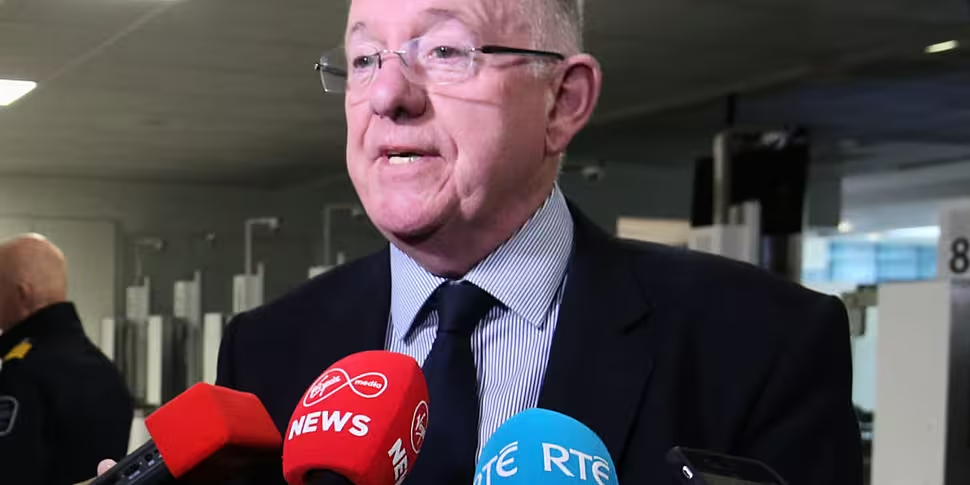The Justice Minister Charlie Flanagan has said he will meet and apologise in person to former Garda Majella Moynihan.
Ms Moynihan publicly told her story for the first time over the weekend.
She explained that she was threatened with dismissal when she had a baby with a colleague outside of marriage in the 1980s.
Ms Moynihan, who was 22 at the time, was subject to an investigation after she became pregnant.
She was charged with two counts under the 1971 Garda Síochána Regulations, relating to premarital sex and giving birth outside marriage.
She ultimately kept her job, although was also summoned and questioned at a hearing on the conduct of the child's father.
Ms Moynihan gave birth to a son in 1984, and the child was given up for adoption.
Ms Moynihan remained in the force until 1998, when she left having sought early retirement.
Garda Commissioner Drew Harris is also set to meet Ms Moynihan to apologise for the way she was treated.
 Garda Commissioner Drew Harris. Picture by: Niall Carson/PA Wire/PA Images
Garda Commissioner Drew Harris. Picture by: Niall Carson/PA Wire/PA ImagesSpeaking in the Dáil on Tuesday, Minister Flanagan said: "I very much welcome the swift action taken by Commissioner Drew Harris to apologise for the treatment of Ms Majella Moynihan and indeed for the impact this treatment may have had on her life since then, when he became aware of her case on Saturday.
"I have echoed this apology in a brief statement I released over the weekend and I intend to apologise to Ms Moynihan in person when I meet her in the coming days.
"As Minister for Justice and Equality, I sincerely regret the appalling ordeal that Ms Moynihan faced as a young Garda member.
"The treatment she has described was simply wrong on every level. In fact, it is shocking.
"As a young Garda, she should have been able to expect that the Garda organisation would offer her support at a time when she was most in need of it."
"It is profoundly disappointing that she did not receive that support, and that, on the contrary, she feels she was treated harshly by the Garda organisation.
"For many decades, Ireland was a country that was highly intolerant of difference.
"Women suffered particularly as did members of the LGBTI community, those with disabilities, and other minorities. Society then functioned in a way that would be regarded as completely unacceptable by our standards today."
"Listening to former Garda Moynihan being interviewed over the last few days, I recalled the tireless campaigning of my former colleague, the late Nuala Fennell, in the 1970s and 1980s, and in particular her advocacy for single mothers.
"Nuala, and a small group of others worked tirelessly to help make this country a kinder, more compassionate and tolerant society.
"We still have a distance to go but thankfully, Ireland today more than at any other time in our past, is more tolerant and less autocratic."
Mr Flanagan added: "The European Union's legal framework today means that the protections under the law that are now in place, not just in the Garda Síochána but in all State organisations and private companies, would not allow these events to happen today.
"However, that is not to say that it was acceptable that they happened in the past or to deny the enormous pain of many people, including former Garda Moynihan.
"Various issues have been raised in relation to this case including the question of Ms Moynihan's pension.
"I expect this issue to be examined and discussed when Ms Moynihan meets the Commissioner.
"I do not intend to pre-empt that discussion. I would just caution that the situation is a complex one."
Minister Flanagan said he plans to meet Ms Moynihan with Commissioner Harris "in the coming days."









